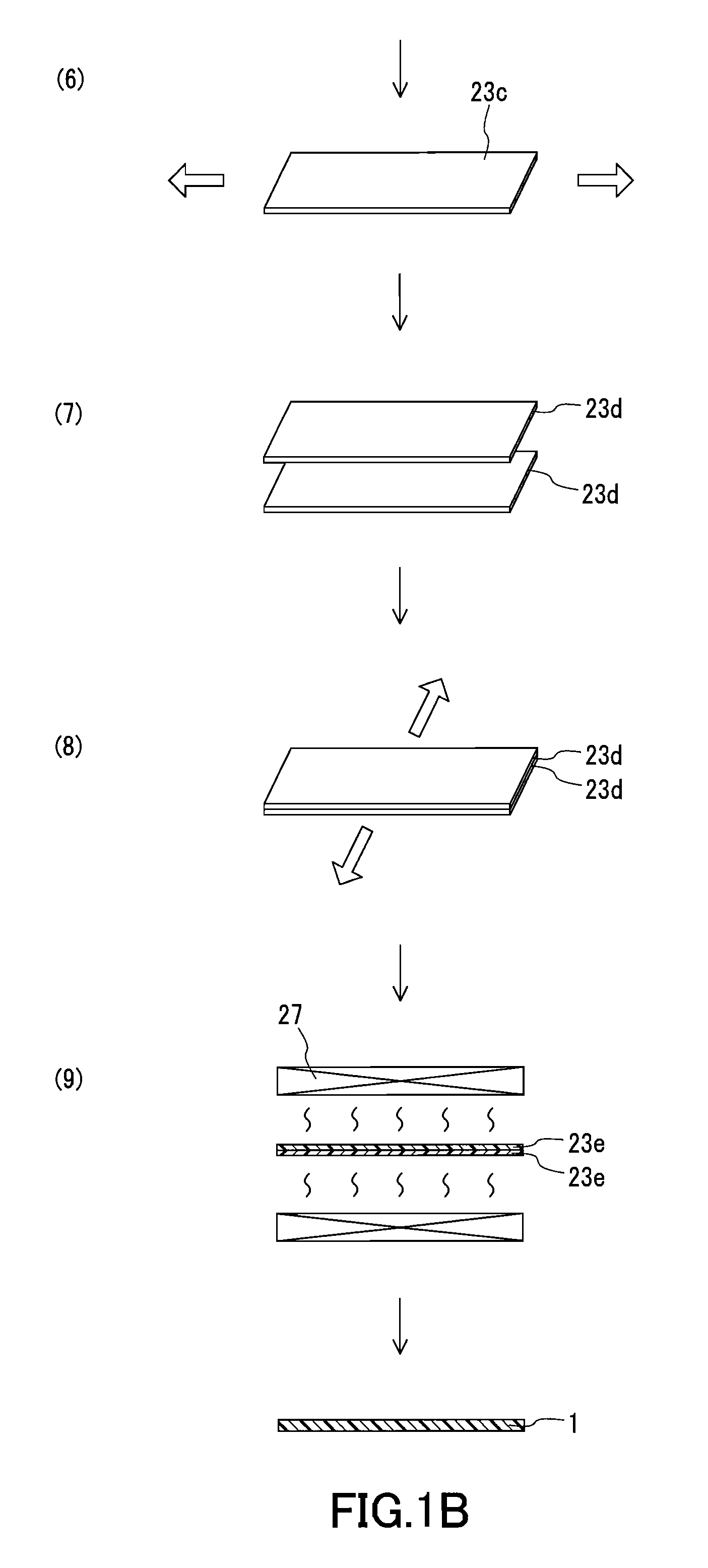Water-proof sound-transmitting membrane, method for producing the water-proof sound-transmitting membrane, and electrical appliance including the water-proof sound-transmitting membrane
a sound-transmitting membrane and sound-transmitting membrane technology, which is applied in the direction of transducer diaphragms, instruments, separation processes, etc., can solve the problems of membrane damage, membrane tends to rupture easily, and increased surface density reduces the sound transmittance
- Summary
- Abstract
- Description
- Claims
- Application Information
AI Technical Summary
Benefits of technology
Problems solved by technology
Method used
Image
Examples
example 1
[0111]100 parts by weight of a PTFE fine powder (Polyflon F101HE produced by Daikin Industries Ltd.) and 20 parts by weight of a liquid lubrication agent (naphtha) were kneaded uniformly to prepare a paste containing the PTFE fine powder and naphtha. This paste was preformed into a circular cylindrical shape at 20 kg / cm2. Next, the obtained circular cylindrical preformed product was extrusion-molded to obtain a sheet-shaped molded product. The obtained sheet-shaped molded product was measured for tensile strength (the distance between chucks was 10 mm and the width of the sample was 10 mm in the measurement). As a result, the tensile strength was 1.8 MPa both in the longitudinal direction (MD) and the width direction (TD).
[0112]Subsequently, while containing the liquid lubrication agent, the sheet-shaped molded product was made go through between a pair of metal pressure rolls to form a long sheet with a thickness of 200 μm. The long sheet continuously was made pass through a dryer ...
example 2
[0115]The PTFE sheet produced in Example 1 was stretched 8 times in the longitudinal direction in the dryer at an ambient temperature of 290° C. Furthermore, two of the PTFE sheets that had been stretched in the longitudinal direction were stacked and stretched 31.5 times in the width direction at an ambient temperature of 150° C. by the tenter method. Then, the biaxially-stretched PTFE sheets were sintered. Thus, a PTFE porous membrane with a dual-layer structure was obtained.
example 3
[0116]The PTFE sheet produced in Example 1 was stretched 10 times in the longitudinal direction in the dryer at an ambient temperature of 290° C., and further was stretched 60 times in the width direction at an ambient temperature of 150° C. by the tenter method. Then, three of the biaxially-stretched PTFE sheets were stacked and sintered. Thus, a PTFE porous membrane with a three-layer structure was obtained.
PUM
| Property | Measurement | Unit |
|---|---|---|
| pore diameter | aaaaa | aaaaa |
| tensile strength | aaaaa | aaaaa |
| pressure | aaaaa | aaaaa |
Abstract
Description
Claims
Application Information
 Login to View More
Login to View More - R&D
- Intellectual Property
- Life Sciences
- Materials
- Tech Scout
- Unparalleled Data Quality
- Higher Quality Content
- 60% Fewer Hallucinations
Browse by: Latest US Patents, China's latest patents, Technical Efficacy Thesaurus, Application Domain, Technology Topic, Popular Technical Reports.
© 2025 PatSnap. All rights reserved.Legal|Privacy policy|Modern Slavery Act Transparency Statement|Sitemap|About US| Contact US: help@patsnap.com



